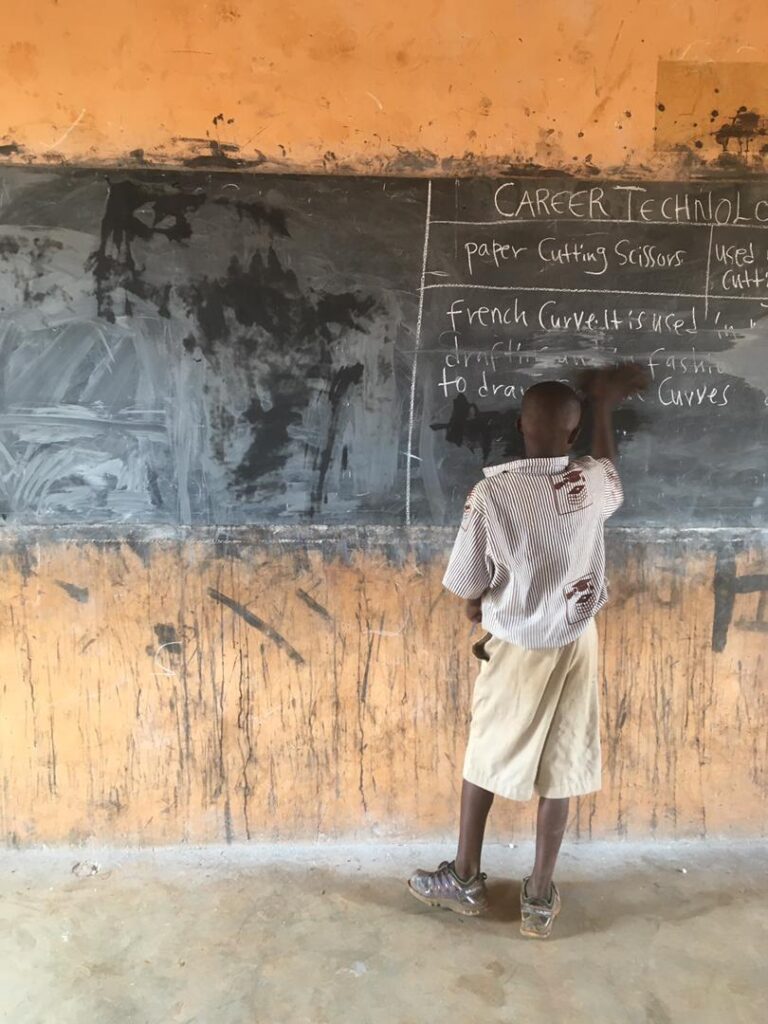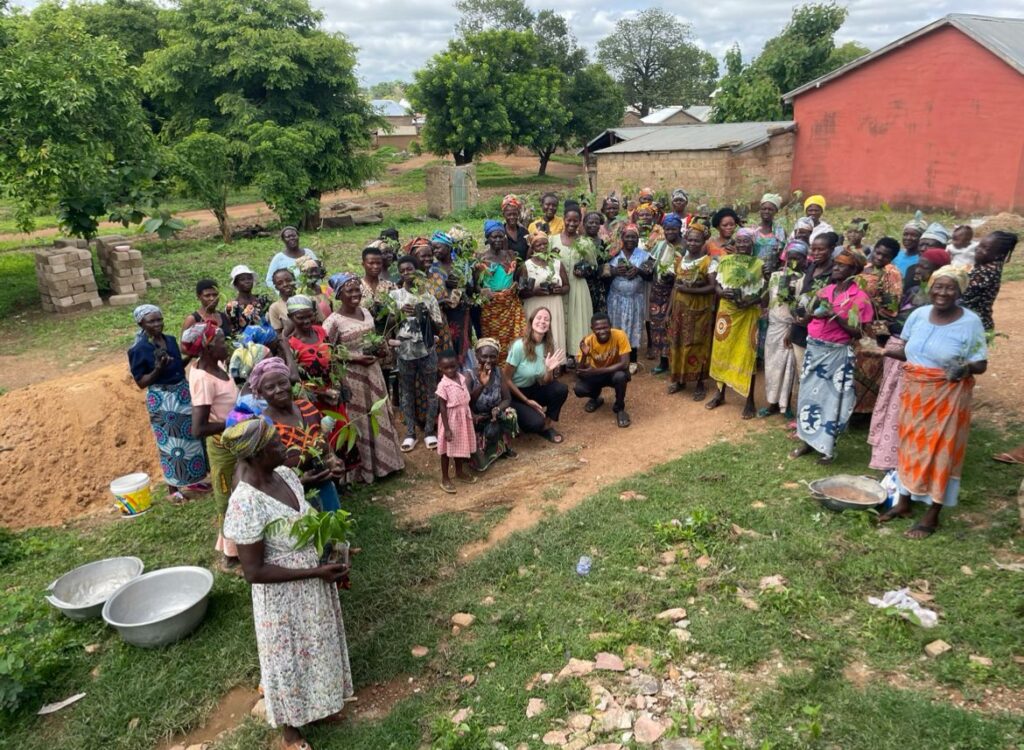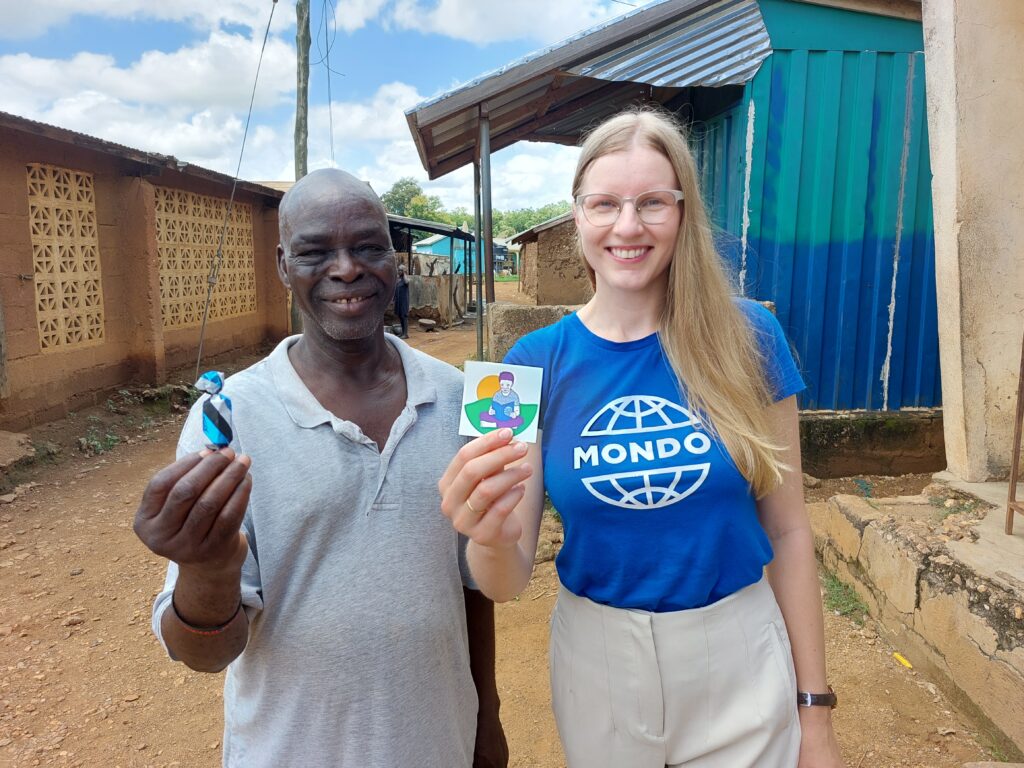Kong-Daborin Junior High School, located in Kongo, Nabdam District, Ghana, was established in 2014 with the primary objective of providing continued education to students graduating from the local primary school. Initially operating from the Old Kongo Senior High building, the school has since grown to occupy a 3-unit classroom block.
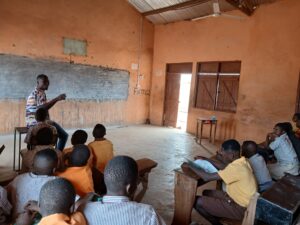
The school is currently staffed with 9 permanent teachers and 1 national service personnel, who provide education to a total of 92 students, comprising 39 boys and 53 girls. The Basic 6 in the primary who would graduate to the Junior high school next academic year currently have an enrollment of 30 students. Despite its growth, the school faces challenges, including limited resources and infrastructure.
Among them are inadequate furniture for students, poor electrical wiring, and the most paramount challenge was the lack of marker boards for classes. The school was using makeshift blackboard, which is a cemented and polished surface coated with black powder derived from spoiled dry cells. This improvised solution makes it difficult to clean the board effectively, resulting in residual writing and stains that cause confusion among teachers and students.
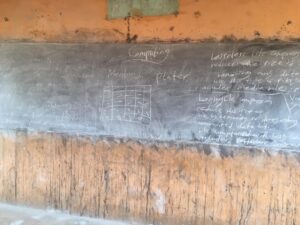
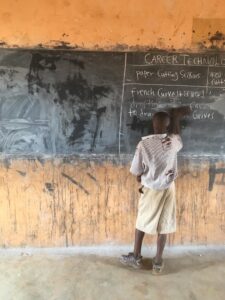
Thankfully, with the generous support of ContribYOUte gGmbH (https://www.contribyoute.org/en/start) , CoDA was able to install three marker boards, one for each class. This initiative has transformed the learning environment, enabling teachers to deliver their lessons more effectively and students to engage more easily with the material. The impact of this intervention will be felt for years to come, enhancing the educational experience for generations of students at Kong-Daborin Junior High School.
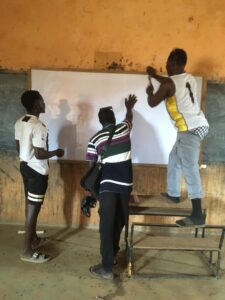
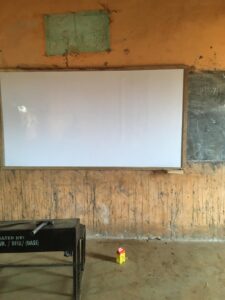
The school community, including the management and staff, students, PTA, Nabdam District Education Office, and CoDA, extends heartfelt gratitude to ContribYOUte gGmbH for this support.
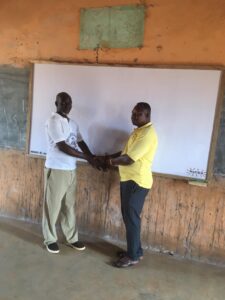
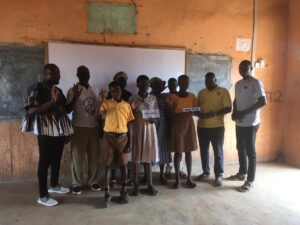
However, CoDA(codagh.org) recognize that Kong-Daborin and other schools in the district still face pressing needs. Notably, fixing broken furniture, improving infrastructure and enhancing teaching resources are crucial for ensuring quality education. We appeal for continued support and partnerships to address these challenges, ultimately making a lasting impact on the lives of our young learners.

